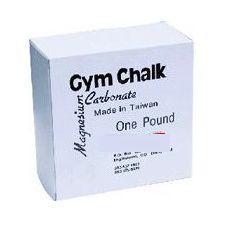Tel: +852 2134-9916
Fax: +852 3016-9839
HK Add:Room F 6/f Mega Cube,No.8 Wang Kwong Road,Kowloon,Hong Kong
Mainland Add: D1437,Xinhezuo Plaza,No.168 Taihua Street,Shijiazhuang,050000 Hebei,P.R.China
Canada Add:13571 Commerce Parkway Richmond, BC V6V 2R2,Vancouver,Canada
E-mail: dlc3721@gmail.com
Whatsapp/wechat:
+86135821022644 Types of Climbing Chalk
Climbers use chalk or magnesium carbonate (MgCO3) as a drying agent like gymnasts and weightlifters
to keep their hands dry and secure on handholds. Chalk often improves your grip on rock surfaces,
especially when air temperatures are hot and your hands are sweating.
4 Kinds of Chalk
Climbing chalk can be purchased in four different types: blocks of chalk; powdered chalk; chalk-filled
fabric balls; and liquid chalk.
Blocks of Chalk
If you took gymnastics or weightlifting in gym class then you probably remember using blocks of chalk
or magnesium carbonate to keep your hands dry. Since John Gill, a former gymnast and father of bouldering,
first introduced gymnastic chalk to climbing back in the 1950s, climbers have used rectangular 2-ounce
blocks of chalk to keep their hands dry. One of the most popular block bands is Endo chalk.
Block Chalk is Easy to Use
The blocks, composed simply of pure magnesium carbonate without additives, usually come in packs
of eight that weigh a pound total although most climbing stores will sell a single individually-wrapped
block for a buck or so apiece. Buy a block and crumble and crush it in your chalk bag. Instead
of putting the whole block in your bag, put half in the chalk bag and the other uncrushed half in a zip-lock
plastic baggie, which you can keep in your pack for replenishment.
Powdered Chalk
Climbers can buy powdered chalk that is already crushed into a fine dust, which can be poured into chalk
bags. Powdered chalk is often formulated by climbing manufacturers like Metolius with drying agents to
increase hand dryness and perhaps create a better grip on holds. Powdered chalk, however, is more
expensive than blocks of chalk. It can be messy and easily spills out of your chalk bag.
Powdered Chalk Best Outside
Many indoor climbing gyms do not allow climbers to use powdered chalk since fine chalk dust lingers
in the air, clogging both climbers’ lungs as well as the gym ventilation system. Powdered chalk comes
in durable, sealable bags or bottles, with packages usually weighing between 4 ounces and one pound.
